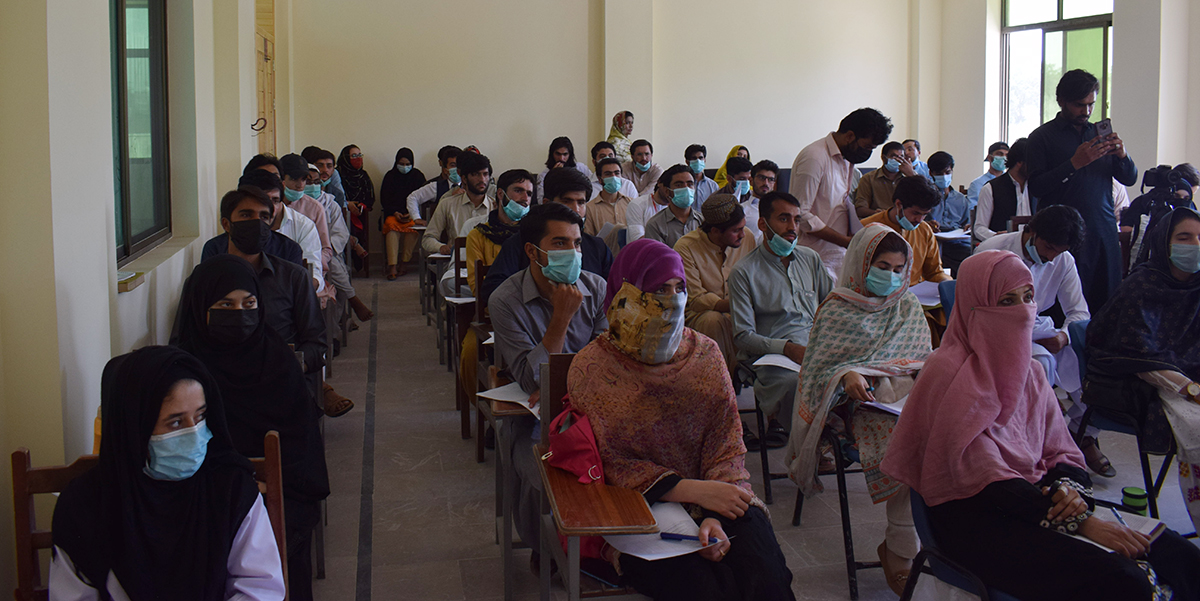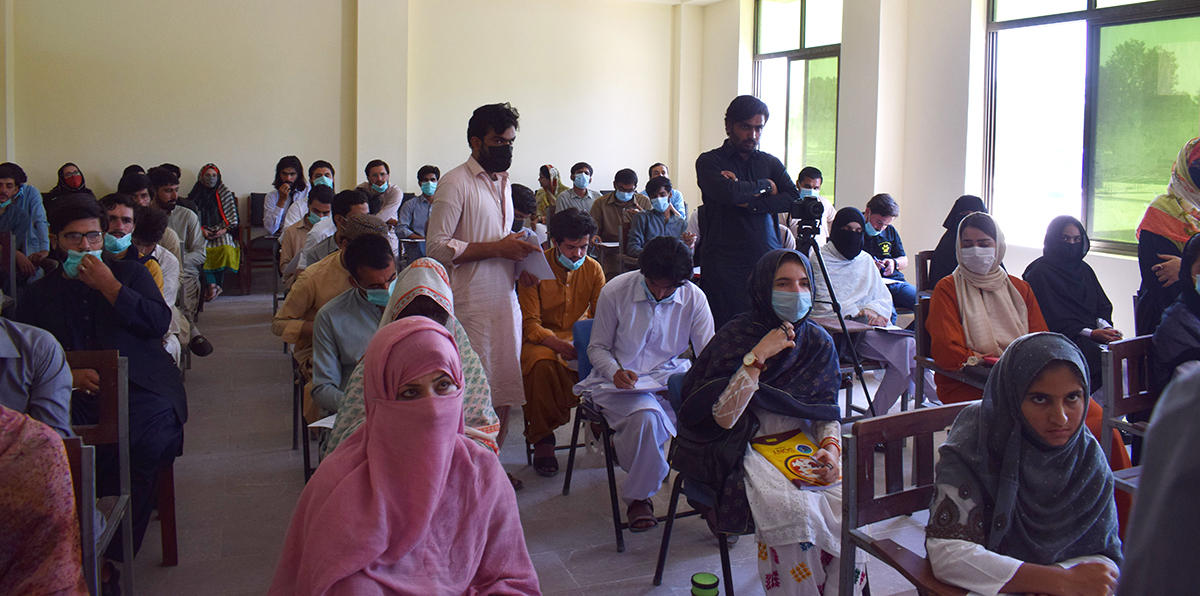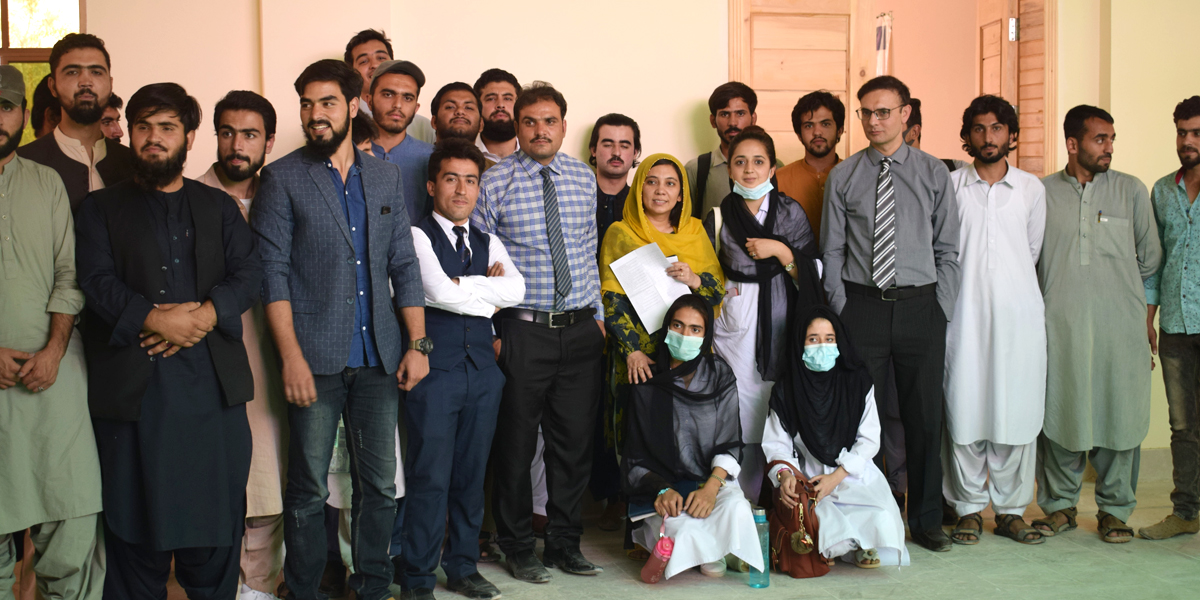The Center for Research and Security Studies (CRSS) conducted the twenty first two-day PACE Collaborative workshops and debates for university students, on July 8-9, 2021, in Pishin District of Balochistan. The workshop was held at University of Balochistan (Pishin Campus). The event was organized under the umbrella of the Pakistan Center of Excellence (PACE), a counter-radicalization and pluralistic values’ focused project, in collaboration with the Dutch Government.
The participants included the students of the University of Balochistan (Pishin) with a total participation of 60 student; 10 female and 50 male students.
The Head of the Institution, Dr. Shoaib Kakar opened the session with a thank you note to PACE team and the organizers of the event. Dr. Kakar said that it is indeed a great opportunity for our students to get together on a platform like this workshop and be a part of learning new things. He added that this is the first ever workshop being conducted at their university in Pishin, and hopes that the collaboration will continue to build up the capacity of their students.

A total of four sessions were conducted on different thematic areas. On day 1, Dr. Aamer Raza spoke on ‘Fundamental of Democracy, Good Governance and Accountability’. He said a state has to go through a number of stages to reach good governance. No institution is stable at its initial stage, and same is the case with democracy. Democracy only delivers when it is mature and stable. He said that egalitarian societies are the ones where people have equal access to education, capital, opportunities and freedom. In such societies, strong institutions, able leadership and good governance emerge and development takes place. He concluded the session by saying that poor democracy is always better than the best dictatorship/authoritarianism.
Mr. Kanan Asif conducted his session on ‘Leadership and Motivation’. He said that there are different styles of leadership including autocratic, visionary, affiliative, democratic, pace-setting and coaching. However, Mr. Asif stressed that the true measure of leadership is influence, nothing more, nothing less. He added that you don’t have to be extraordinarily brilliant or the smartest one to be a leader, all it takes is courage, confidence and risk-taking. Most importantly a good leader does not have an answer for everything; he does not advice. Instead of having an answer to every question, the most effective leaders are coaches – people who can guide others to arrive at their own solutions, put them into action, and set goals. A poor leader is frequently too busy dispensing advice to fully understand the situation they’re being asked about and because they don’t know all of the issues at stake, they risk focusing on the wrong ones. Further, he discussed some fundamental laws of leadership including the law of process, the law of navigation, and law of respect and so on.

On day 2, Ms. Urooj Rajput conducted a session on respect for diversity, rights and opinions. She started the session with an activity on differences and similarities among the students. The activity concluded with diversity being about differences yet accepted and respected. She said that diversity means being unique and different from others. Being different is beautiful because homogeneity is stagnant and static. She added that diversity brings out the different colours which should be celebrated. Each individual has a different personality with multiple traits and perspectives. Diversity is respected when we start developing a habit of listening to others and understand their perspective on life. Pakistan is a very diverse country with regard to ethnicities, cultures, religions, languages and genders. Diversity being present in a society is a permanent factor which cannot be altered. There are certain stereotypes regarding various ethnicities or religions which need to be challenged and changed. No trait is a permanent part of any religion, culture or ethnicity, being different is natural. Stereotyping is the worst kind of discrimination.
Last session of the day was conducted by Mr. Sadiq Sumalani who shared his views on media ethics. He stated that the media should consider norms and values of a society, selection of words and body language should match the cultural values. Sensationalism should be avoided and self-censorship should be considered. Biased and abusive attitude should not be accepted. She stressed on the importance of being neutral and presenting authentic news. He also elaborated on the future of electronic broadcast media in Pakistan.
The students attended all the session and appreciated the knowledge imparted during the sessions. They were of the view that such sessions should be conducted more often because it encourages them to come up with the questions they cannot ask or inquire about in normal routine.

